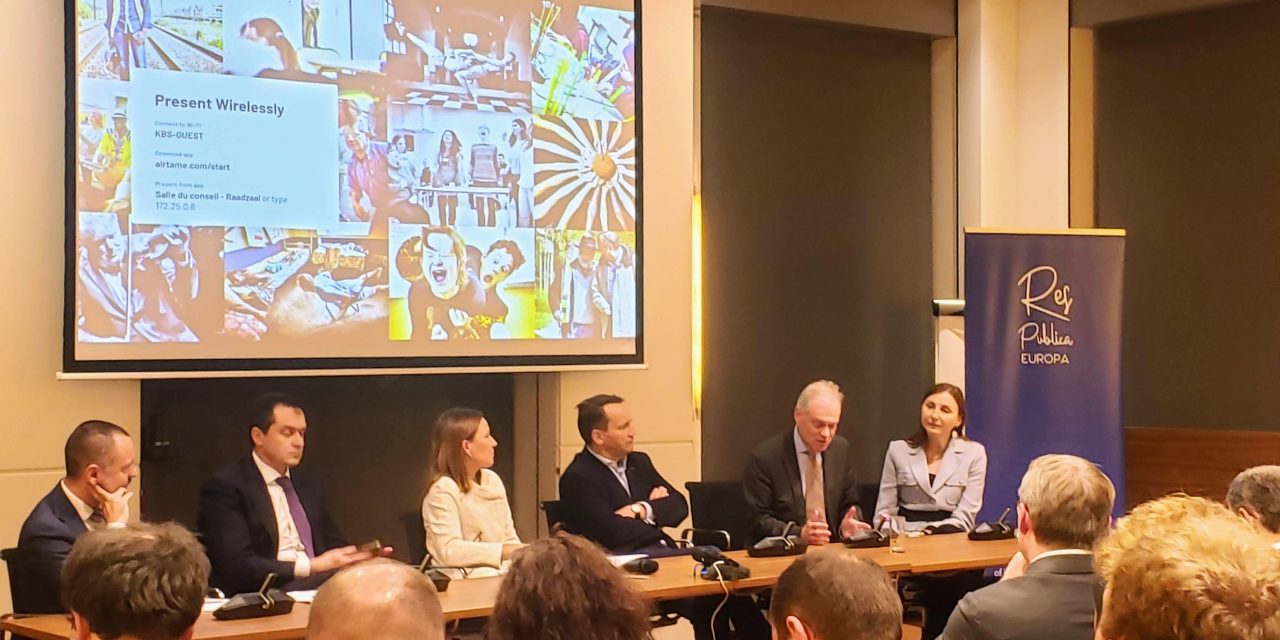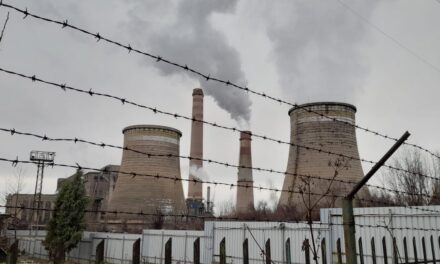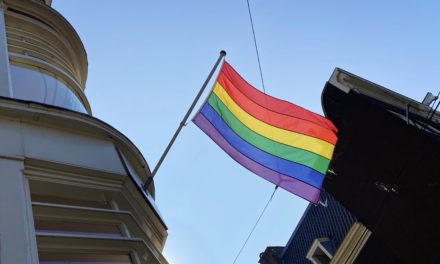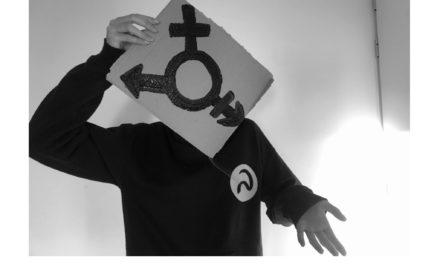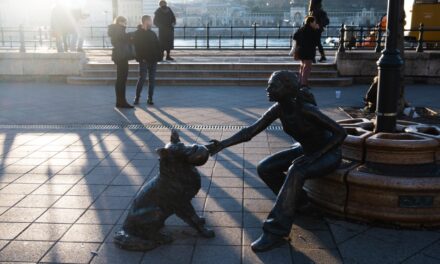With twenty-seven current member states in the EU, some would like to call this club an exclusive one, while others look ahead to EU enlargement and a further unified Europe. The heads of mission of Ukraine, Moldova, and Serbia to the EU gathered with EU commission representatives in Brussels for a panel debate on EU enlargement on November 9th.
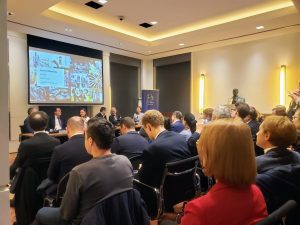
Panel discussion at King Baudouin Foundation
Enlargement is no foreign term to the European Union, throughout the years its number has more than quadrupled. Without these changes, the European Union would not be what it is today. The partnerships of the EU which have grown across the face of Europe have solidified Europe’s position on the geopolitical playing field as well as opened trade, exchange, and comradery across Europe.
Now, the EU has nine open applications, and prospective members must prove they can adhere to the EU’s values and criteria. Additionally, existing member states must reach a consensus. Serbia, Moldova, and Ukraine, among others, have all worked hard to meet the criteria and they want a seat at the table. Meanwhile, the EU is working to determine what enlargement should look like, what reforms need to occur, and who is ready to take a seat.
Serbia faces several challenges when preparing to join the EU. The first and most glaring is the conflict with Kosovo. When asked about this, Danijel Apostolovic, acting Head of Mission of the Republic of Serbia to the EU, only emphasized that five EU countries do not recognize Kosovo as a state. Furthermore, Serbia needs to make reforms regarding its rule of law and attention to human rights. Serbia must fight for an improved system, yet there are still many in Serbia who are not in favor of joining the EU.
Moldova also has unresolved conflict, in the region of Transnistria, and needs to grow its government and economic structures. Daniela Morari, Head of Mission of the Republic of Moldova to the EU told of the growth that has already been made and of the accountability provided by working to meet the standard.
Russia’s war in Ukraine wages on, and Ukraine has shown in its fight that it stands with Europe and battles for these values. Ukraine has withstood in unthinkable circumstances. Chentsov Vsevolod, Head of Mission of Ukraine to the EU commented on the uncertainty of the continuing war saying, “It is not just about stopping the Russians, but it is about principals, it’s about who you are.”
Other members of the panel were loud in standing behind Ukraine, saying the support of the European Union is needed especially now. They discussed the EU standards which Ukraine already meets. “The Ukrainian state works, I can testify that it works.” Radosław Sikorski former Foreign Affairs Minister of Poland said, proceeding to tell a story of being pulled aside for a speeding ticket in western Ukraine amid wartime.
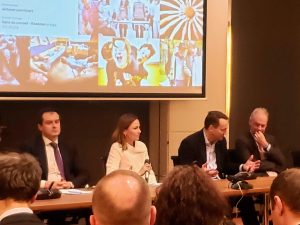
The expressions of the EU enlargement panel
Gert Jan Koopman, Director-General of DG NEAR at the European Commission was quick to dismiss the idea of Ukraine being a war discount. He concluded “Let us not get lost into defeatist discussions about the lack of capacity. I think that’s the wrong debate now. We need to work. Obviously, this issue will be there, but the priority is making progress on the ground rapidly. Much more rapidly than we have done in the past.”
The following audio contains clips of the panel discussion, which was moderated by Dorota Bawołek, a correspondent of Polish media in Brussels. The audio quotes the representatives mentioned above.
